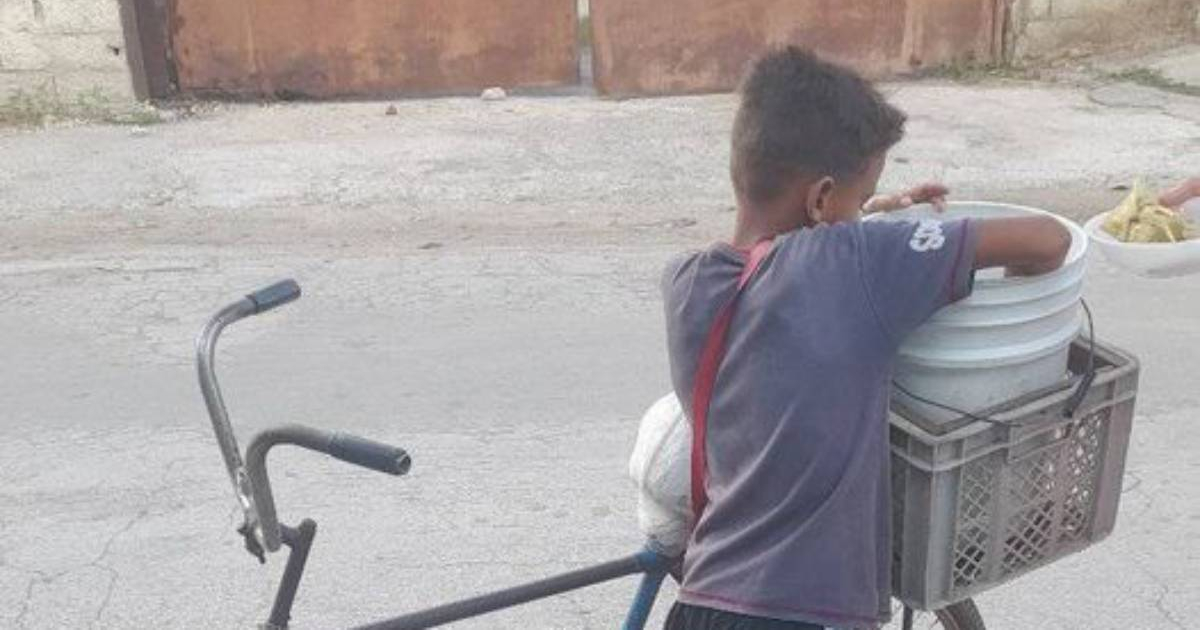A 10-year-old Cuban boy, riding an old, oversized bicycle, roams the streets of Camagüey every afternoon selling tamales to make a living.
Independent journalist José Luis Tan Estrada highlighted this case on his Facebook profile, shedding light on the harsh reality many children in Cuba face, caught in an economic crisis that forces them to work from a young age.
"Worn-out shoes. Sun-stained face. Counting bills with remarkable agility, and in his eyes, the reflection of a joyless childhood," Tan Estrada described in his post, which has garnered significant impact on social media.
"My mom left for Russia, my dad wants to leave too. I live with my grandparents and my uncle," the boy told the journalist.
The child's testimony underscores the severity of the economic situation and the current migration crisis in Cuba, which leaves thousands of children separated from their parents and under the care of grandparents, facing very precarious family circumstances.
Alarming Increase in Child Labor in Cuba
Many Cuban children, instead of enjoying their childhood, are seeking ways to work to support their families. From selling goods on the streets to scavenging through trash or begging, more and more minors are being forced to work to survive in Cuba each day.
Despite Cuban law prohibiting child labor and protecting minors' rights, the devastating effects of the economic crisis are evident.
The regime tries to deny it, but even the official press recently acknowledged the existence of child labor cases in the country.
Educational institutions in Santiago de Cuba, such as IPU-Cuqui Bosch and Espino Fernández Secondary School, have identified children in their communities who work and miss classes to contribute to their household's sustenance.
The story of this boy from Camagüey reflects a broader issue, where migration and poverty are leaving deep scars on the new generations of Cubans.
The regime does not offer economic support to vulnerable families, and the quality of life for children in Cuba is getting worse.
This year, for the first time, UNICEF acknowledged that 9% of Cuban children suffer from severe food poverty, consuming only two of the eight essential foods needed for healthy growth.
Child Labor and Migration Crisis in Cuba
The situation in Cuba has raised many questions about the impact of the economic crisis on children and families. Here are some frequently asked questions and their answers.
What is causing the increase in child labor in Cuba?
The increasing economic crisis in Cuba is forcing many children to work to support their families. The regime's failure to provide adequate financial support to vulnerable families exacerbates this issue.
How does the migration crisis affect Cuban children?
The migration crisis results in many children being left behind by parents who leave the country in search of better opportunities. These children often live with grandparents or other relatives in precarious conditions.
What are the legal protections for children in Cuba?
Cuban law prohibits child labor and aims to protect minors' rights. However, the enforcement of these laws is weak, and the economic crisis undermines their effectiveness.
